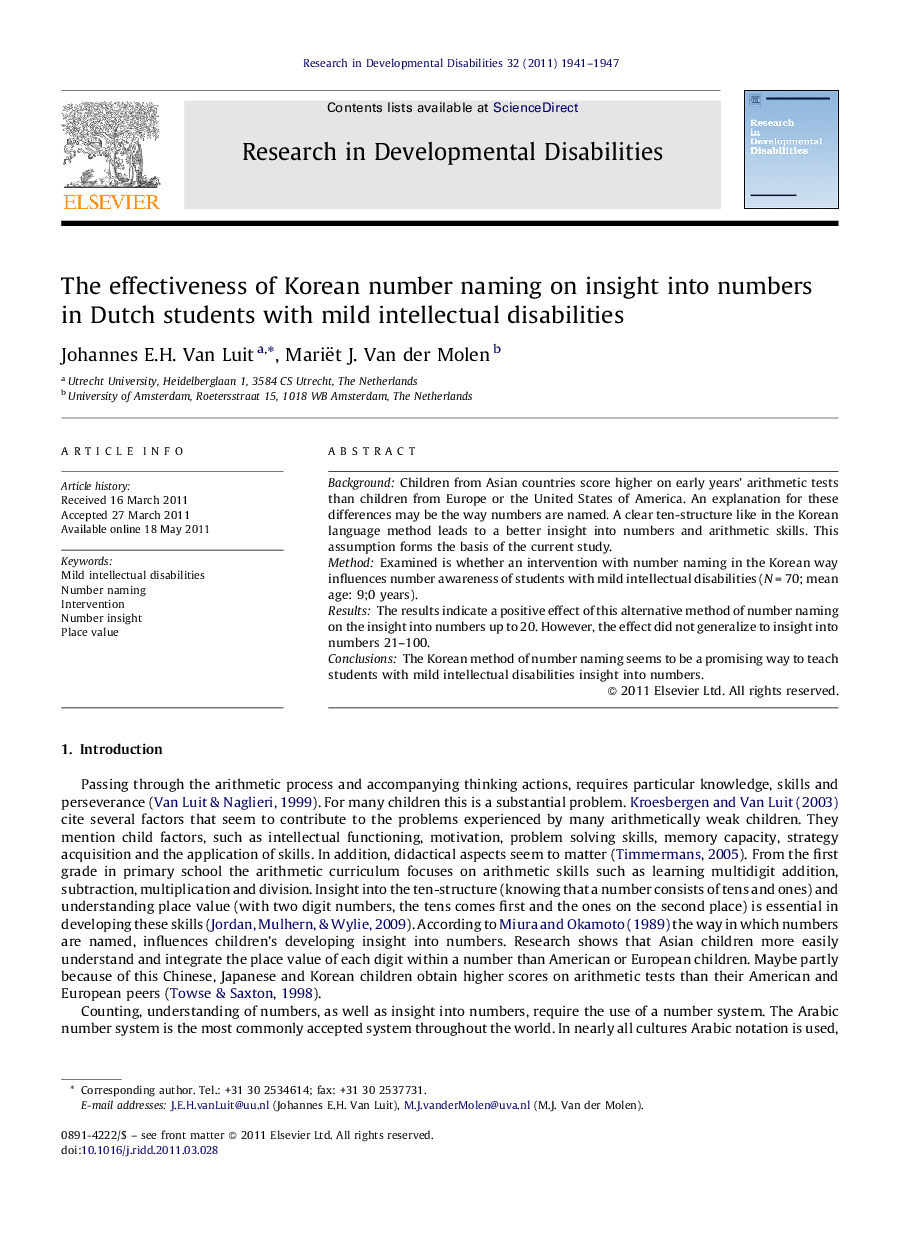| Article ID | Journal | Published Year | Pages | File Type |
|---|---|---|---|---|
| 371731 | Research in Developmental Disabilities | 2011 | 7 Pages |
BackgroundChildren from Asian countries score higher on early years’ arithmetic tests than children from Europe or the United States of America. An explanation for these differences may be the way numbers are named. A clear ten-structure like in the Korean language method leads to a better insight into numbers and arithmetic skills. This assumption forms the basis of the current study.MethodExamined is whether an intervention with number naming in the Korean way influences number awareness of students with mild intellectual disabilities (N = 70; mean age: 9;0 years).ResultsThe results indicate a positive effect of this alternative method of number naming on the insight into numbers up to 20. However, the effect did not generalize to insight into numbers 21–100.ConclusionsThe Korean method of number naming seems to be a promising way to teach students with mild intellectual disabilities insight into numbers.
► We investigate the use of an alternative method of number naming. ► Dutch students with mild intellectual disabilities profit from Korean number naming. ► There is no generalization of this insight to bigger numbers.
